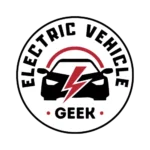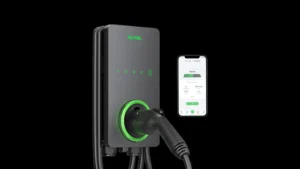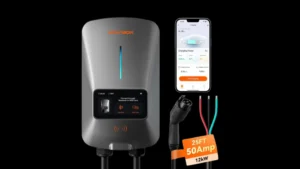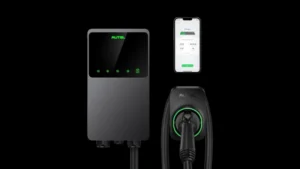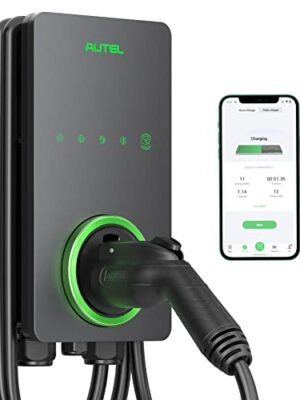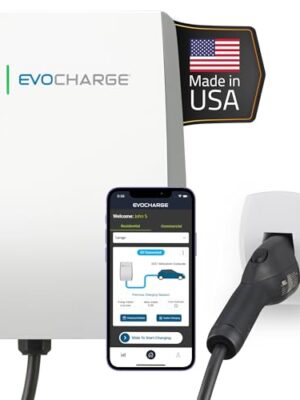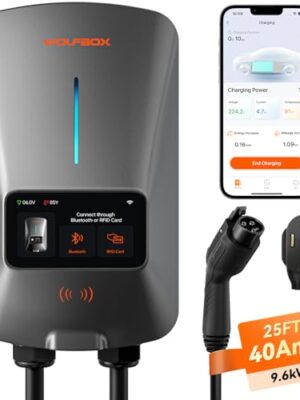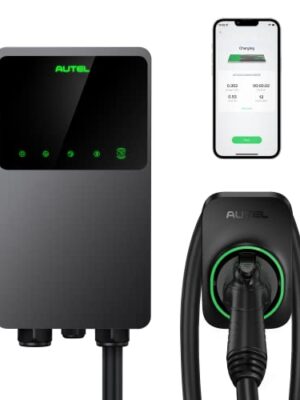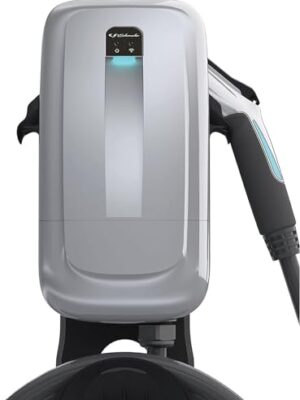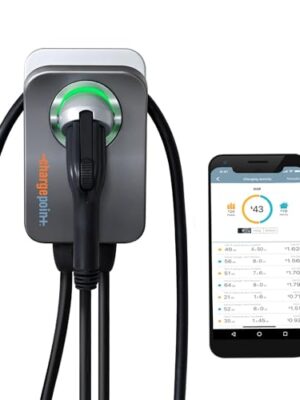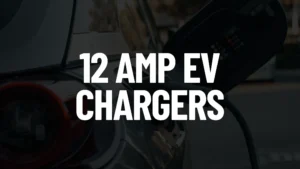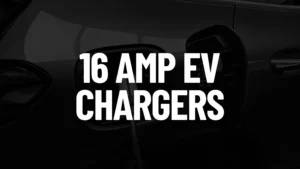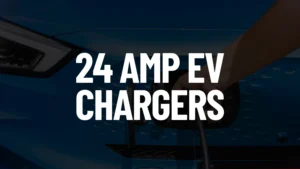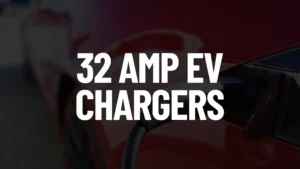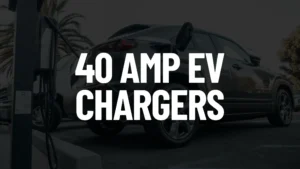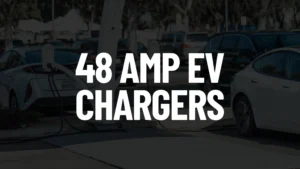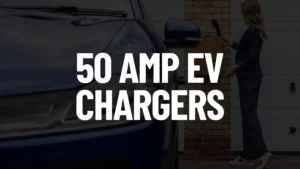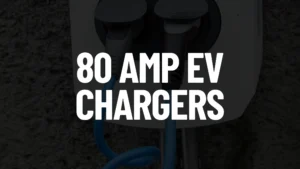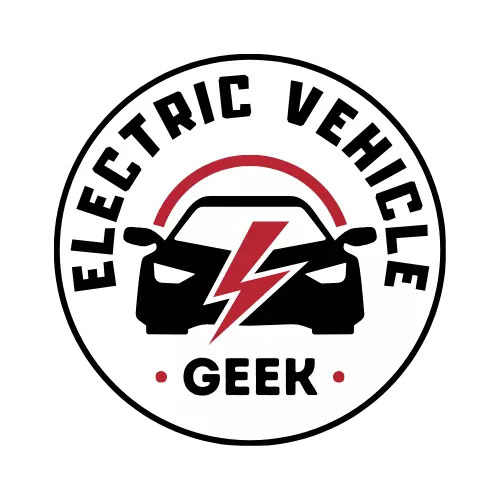Supported by you via insider access, and when you purchase through links on our site, we may earn an affiliate commission. See our Affiliate Disclosure.
50 AMP EV Chargers Reviews 2025
Explore top-rated 50 AMP Level 2 EV chargers designed exclusively for hardwired installations. Ideal for home or commercial workplace charging, these high-performance models offer fast, reliable power delivery. Compare by output, features, and compatibility to find the perfect fit for your EV and electrical system.
Best 50 AMP EV Chargers
No one tests more EV chargers than we do. Need a high-power 50A EV charger? Discover our expert-reviewed 2025 models – optimized for fast, reliable charging at home or commercial locations. All models in this category are hardwired only for maximum performance and NEC compliance.
Best Smart EV Charging EV Charger For Homes
Integrates with home energy systems and CSMS
Best for Outdoor EV Charger Installations
Raintight, weather-resistant outdoor EV charger enclosure
Best Multi-User 48 Amps EV Charger
Comes with 1 Management Card and 2 RFID Charging Cards
Best EV Charger for Safety and Efficiency
Certified: CSA, Energy Star, CE & FCC Compliant
See All 50 Amp EV Charger (J1772 or Tesla/NACS)
Browse all our curated selection of 50 AMP EV chargers, compatible with Tesla/NACS or J1772 EVs depending on the model. These high-output Level 2 chargers are engineered for hardwired installations and support up to 50 amps of continuous load, delivering up to 12 kW of charging power. Ideal for fast overnight charging, larger EV batteries, and demanding residential or commercial use cases.
What Is a 50 Amp EV Charger?
A 50 Amp EV Charger is a Level 2 EV charger that delivers up to 12 kW, adding approximately 55 miles of range per hour, depending on your EV’s efficiency. We recommend 48 Amp EV chargers for high-mileage drivers, EVs with large battery packs, and locations requiring rapid charging.
50 Amp EV Charger Circuit Requirements
A 50 Amp EV charger must be installed on a 240V dedicated circuit protected by a 70A dedicated double-pole breaker to comply with the NEC’s 80% rule for continuous loads. Wiring must use 4 AWG solid copper conductors for hot wires and 8 AWG copper wires for ground, rated for at least 75°C (e.g., THHN).
All 50A chargers must be hardwired – plug-in setups are not permitted due to continuous load limits (NEC 625.41). Installations require a dedicated circuit, proper wire sizing, and GFCI protection to ensure safe operation.
Hardwired 3-Wire 50 Amp EV Charger Circuit Wiring Diagram
This configuration, illustrated below, uses two 4 AWG copper hot wires – black (L1) and red (L2) – along with one 8 AWG copper ground wire (green). Power is supplied from a dedicated 70A double-pole breaker in the main panel through conduit to a junction box. The hot wires connect to the 50 Amp EV charger’s terminals, and the ground wire is bonded to the ground busbar. No neutral conductor is required in this setup.
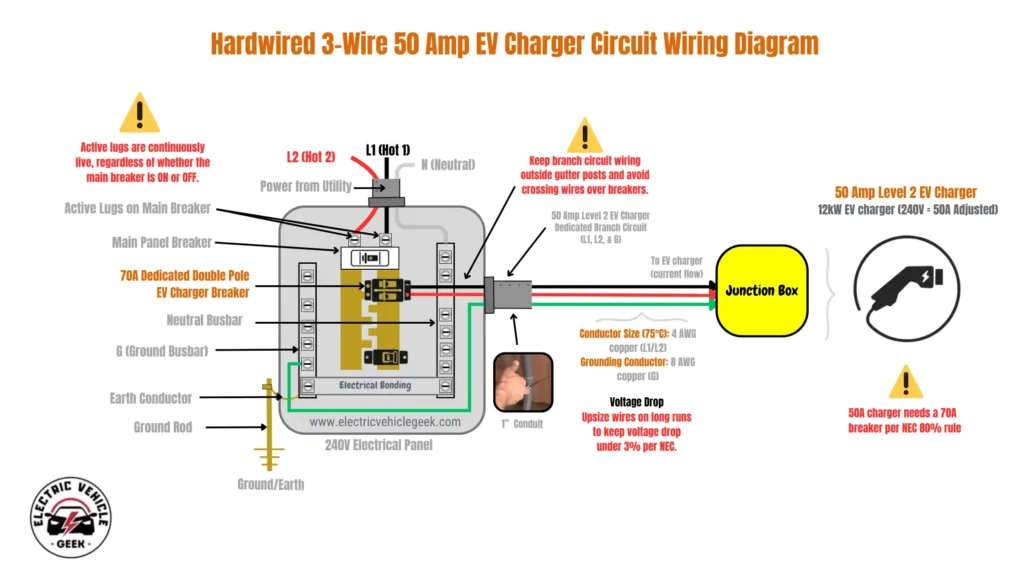
Hardwired 4-Wire 50 Amp EV Charger Circuit Wiring Diagram
As shown in our circuit wiring diagram below, this setup uses four conductors: two 4 AWG copper hot wires – black (L1) and red (L2), one 4 AWG copper neutral wire (white) from the neutral busbar, and one 8 AWG copper ground wire (green) from the ground busbar. All wires terminate inside a junction box where the 50 Amp EV charger is hardwired. The neutral wire is not used for power delivery but may be required for communication or smart features—always follow the charger’s installation specifications.
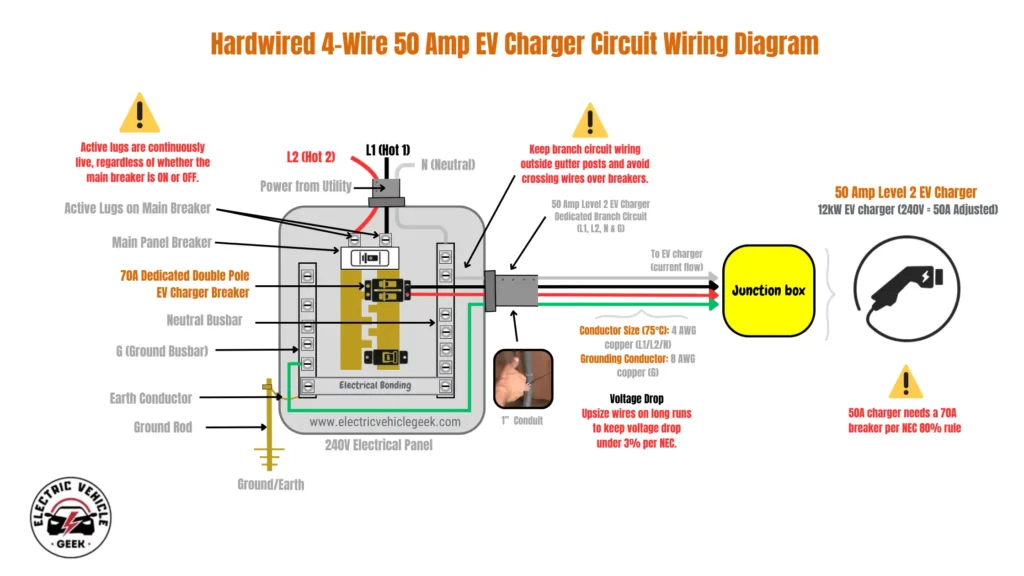
Want Max Power or Simpler Setup? Compare Popular EV Charger Amperages
50A chargers provide up to 45 miles of range per hour – ideal for high-powered 70A dedicated EV charger branch circuits. Want to ease the electrical load? Try 16A to 48A EV chargers below. Want maximum speed? Step up to 80A EV chargers below.
120V, 12A, 1.44 kW
Adds approx. 3–8 miles of range per hour.
120V or 240V, 16A, 1.92–3.84 kW
Adds approx. 3–12 miles of range per hour
240V, 24A, 5.76 kW
Adds approx. 22 miles of range per hour
240V, 32A, 7.68 kW
Adds approx. 26 miles of range per hour
240V, 48A, 11.5 kW
Adds approx. 40 miles of range per hour
240V, 80A, 19.2 kW
Adds approx. 75 miles of range per hour
